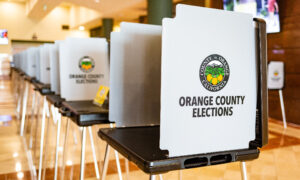A counterfeit check scam is increasingly aiming to dupe law firms out of their money, with scammers masquerading as potential clients, according to an alert issued by the FBI.
The scam targets “law firms engaged in collections work,” according to the Oct. 8 alert by the agency. Such work involves collecting funds such as outstanding debts on behalf of their clients.
In the scheme, a scammer contacts a lawyer, posing as a prospective client. Once the client is accepted, the firm sends a collection demand letter to the alleged debtor. The debtor sends what seems to be a valid cashier’s check to the firm.
The law firm deposits the check into its client trust account, where attorneys hold money on behalf of their clients. The lawyer then transfers the amount to the client less any legal fees.
However, the law firm’s bank subsequently discovered that the check given by the alleged debtor was fraudulent and charged back the check value to the client’s trust account.
Since the funds have already been wired to their client, “the law firm is left to suffer the financial loss,” according to the alert.
Scammers hire lawyers for collection work for various purposes, including real estate transactions and collaborative law agreements related to family matters.
Many cashier’s checks involved in the scam tend to be drawn from a genuine bank in Canada—increasing the time it takes to verify the checks and availability of funds. The client also tends to be based in an international location, which is often used to justify communication delays.
According to the Federal Trade Commission (FTC), fake check scams work “because fake checks generally look just like real checks, even to bank employees.”
“They are often printed with the names and addresses of legitimate financial institutions. They may even be real checks written on bank accounts that belong to someone whose identity has been stolen. It can take weeks for a bank to figure out that the check is a fake,” the agency stated.
Banks are legally required to make deposited funds available to their customers quickly, typically within two days. When funds are made available to the customer’s account, the bank may say the check has been cleared. However, “that doesn’t mean it’s a good check,” the FTC stated.
During the time taken to verify checks, the money sent to the scammer would have already been withdrawn.
Dealing With Fake Checks
The FBI advised law firms to be suspicious of any client requests or pressure to take quick action.“A number of potential victims were able to successfully identify the fraudulent check by adhering to policies which required a delay or hold on the funds until confirmation that the debtor’s check had indeed cleared into their client trust accounts,” the agency noted.
If a law firm realizes that it has been duped after sending funds to its client, the firm should contact its financial institution and ask it to contact the client’s bank to see if the funds can be frozen or recalled, the FBI stated.
Certain signs can indicate that a check is counterfeit. When colors smear upon rubbing with a moist finger, this could suggest it is a fake that was manufactured on a color printer, according to the Georgia Department of Banking and Finance.
Similarly, checks printed on paper of poor quality or paper that feels too slippery may be counterfeit.
“Checks presented at busy times by belligerent or distracting customers who try to bypass procedures” could be fake as well, the department stated.
The Federal Deposit Insurance Corporation (FDIC) advised individuals targeted by counterfeit check scams to report it to the U.S. Postal Inspection Service in case the check was received through the mail.
The incident should also be reported to state and consumer protection agencies as well as the Internet Crime Complaint Center, the FDIC stated.













